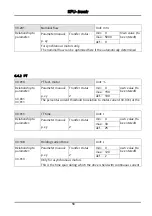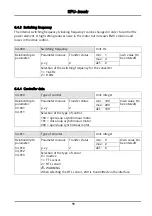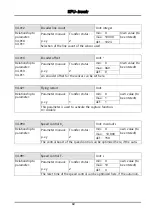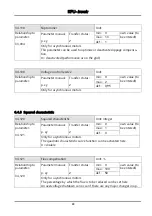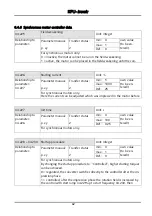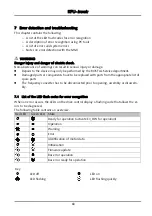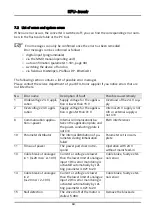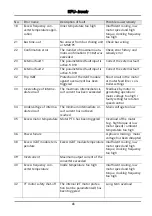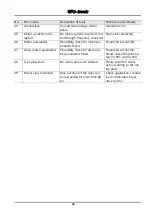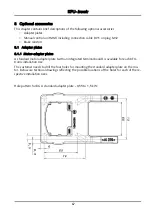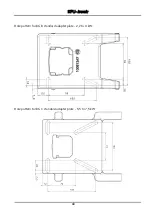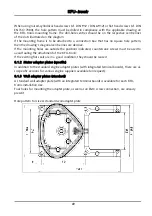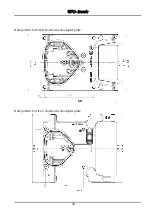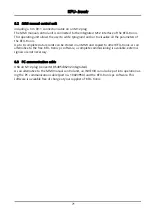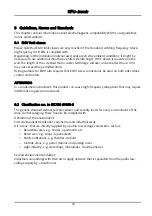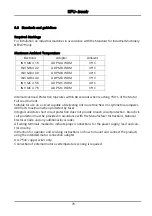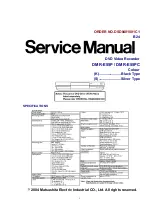
KFU-
tronic
72
9
Guidelines, Norms and Standards
This chapter contains information about electromagnetic compatibility (EMC), and guidelines,
norms and standards.
9.1
EMV limit classes
Please note that EMV limit classes are only reached if the standard switching frequency (clock-
ing frequency) of 8 kHz is complied with.
Depending on the installation material used and/or extreme ambient conditions, it might be
necessary to use additional sheath wave filters (ferrite rings). If the device is mounted on the
wall, the length of the screened motor cables (with large surfaces on both sides) (max. 3 m)
may not exceed the permitted limits.
Wiring suitable for EMV also requires that EMV screw connections be used on both sides (drive
control and motor).
ATTENTION!
In a residential environment, this product can cause high-frequency disruptions that may require
interference suppression measures.
9.2
Classification acc. to IEC/EN 61800-3
The generic standard defines test procedures and severity levels for every environment of the
drive control category; these have to be complied with.
Definition of the environment
First environment (residential, commercial and industrial area):
All “areas” that are directly supplied by a public low voltage connection, such as:
o
Residential area, e.g. houses, apartments etc.
o
Retail area, e.g. shops, supermarkets
o
Public institutions, e.g. theatres, stations
o
Outside areas, e.g. petrol stations and parking areas
o
Light industry, e.g. workshops, laboratories, small businesses
Second environment (industry):
Industrial surroundings with their own supply network that is separated from the public low-
voltage supply by a transformer.

